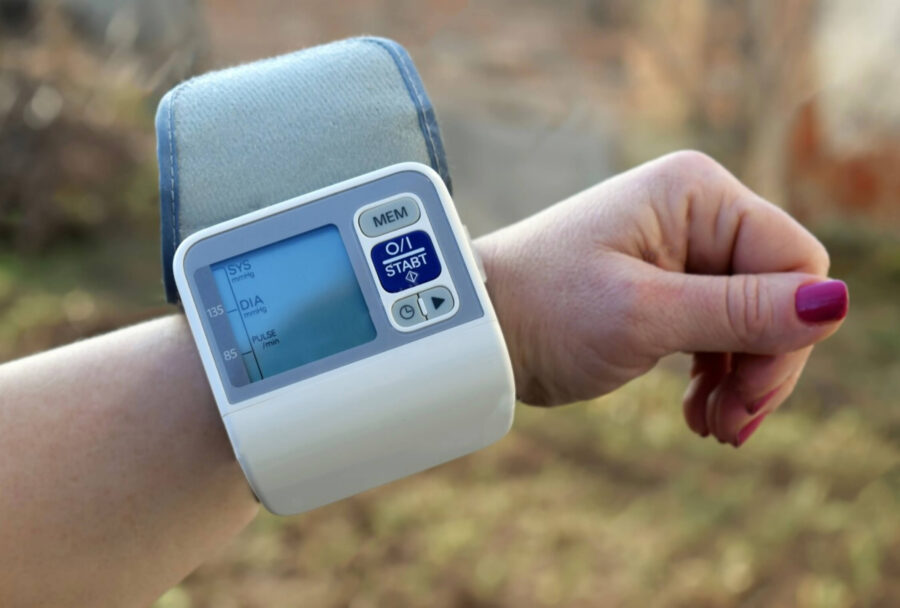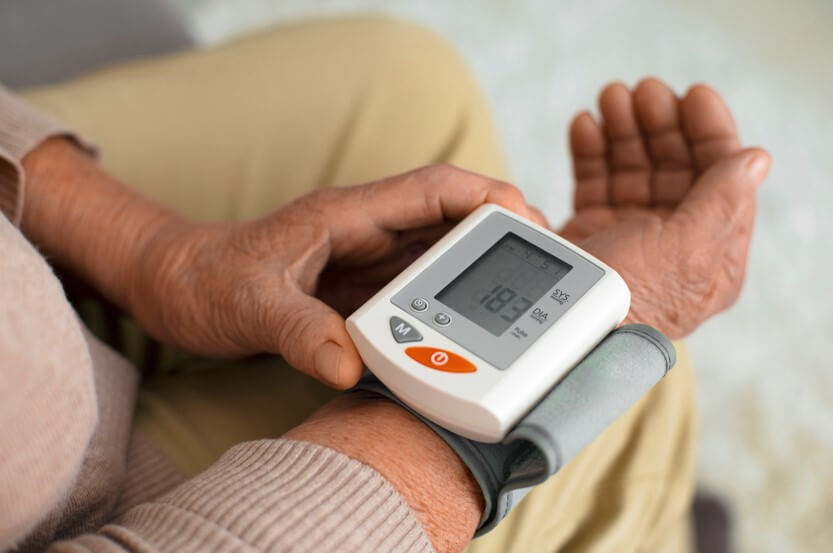
Check Your Health with Remote Patient Monitoring Devices While Traveling
On June 22, 2023
Embarking on a journey can be a revitalizing and transformative adventure, offering unmatched prospects for discovering new locales, delving into diverse cultures, and creating memories. However, amid the excitement and wanderlust, it is crucial not to overlook the importance of maintaining one’s health during these adventures. A key component of a fulfilling travel experience is staying healthy and vigilant to potential issues. After all, an unforeseen medical problem can easily put a damper on what should be the trip of a lifetime.
With the ongoing advancements in healthcare technology, portable monitoring devices have become an indispensable resource for travelers seeking to maintain their well-being and monitor their health while exploring new horizons. The increasingly popular and diverse world of monitors, ranging from fitness trackers and smartwatches to specialized devices for managing chronic ailments, has revolutionized the way travelers can monitor their health. These cutting-edge gadgets empower their users with real-time health data and unprecedented access to their vital signs and other key health metrics, enabling them to proactively address issues and adapt their routines accordingly.
Benefits of Monitoring Health While Traveling
Using portable health monitors while traveling can offer a range of benefits, including early detection and prevention of potential issues. These devices can help individuals identify abnormal trends in their health data, allowing them to address problems before they escalate. Additionally, the data provided by these monitoring medical devices enables informed decision-making for self-care, allowing travelers to adjust their activities and routines accordingly.
Another advantage is their ability to enhance engagement between travelers and medical professionals. By providing continuous access to health data, these devices enable medical providers to offer remote care and consultations, allowing travelers to stay connected to their support systems even when far from home. Furthermore, the use of monitors can lead to reduced healthcare costs and expenses by preventing the need for costly emergency care and promoting proactive health management.
Types of Portable Health Monitoring Devices
A wide array of remote patient monitoring is currently available to cater to the diverse health needs of travelers. Some of the most popular portable tools include:
- Fitness Trackers: These wearable devices often take the form of wristbands or straps equipped with sensors that monitor physical activity, heart rate, and other vital signs. They can wirelessly sync to smartphone apps, enabling travelers to store and access their health data conveniently;
- Smartwatches: The evolution of smartwatches has propelled them beyond simple step-counters into multifaceted health-monitoring devices, equipped with features tailored to assist individuals in managing a wide range of health conditions. For example, smartwatches for people with Parkinson’s disease can track symptoms, while the Apple Heart Study app can monitor users’ heart rhythms and alert them of potential atrial fibrillation;
- Electrocardiography (ECG) Monitors: ECG monitors, available in handheld, wearable, or patch form, continuously track users’ heart rates and pulse. These devices allow doctors to remotely monitor patients, detect arrhythmias, and address potential issues early on;
- Smart Clothing and Sensors: Smart clothing incorporates built-in technology that collects biometric and physical data, such as heart rate and body temperature, through embedded sensors. Data is transmitted to a connected device, like a smartphone, for easy access by the wearer;
- Continuous Glucose Monitoring Devices (CGMs): Designed for individuals with Type 1 or Type 2 diabetes, these devices involve inserting a sensor under the skin to continuously monitor blood sugar levels. The results are transmitted to a wearable or mobile device via a Bluetooth-enabled transmitter, facilitating diabetes management while traveling;
- Sleep Trackers: Worn on the wrist or finger during sleep, these devices allow users to monitor their heart rate, respiratory patterns, and other vital parameters. They record data related to sleep quality, duration, and stage, providing valuable insights for travelers looking to maintain good sleep hygiene while away from home;
- Travel Blood Pressure Monitor: Digital blood pressure monitors — including wristwatches, cuffs, and other portable devices — allow travelers to easily measure their blood pressure and transmit readings to their healthcare providers;
- Pulse Oximeters: These non-invasive clips attach to fingers or earlobes to measure blood oxygen levels and pulse rates, a crucial tool for travelers with chronic heart or lung issues;
- Medication Monitors: Smart pill dispensers and tracking systems ensure travelers take the correct dosage of medication at the appropriate times, reducing the risk of missed doses or adverse drug events;
- Wearables for Monitoring Chronic Conditions: Wearable devices designed to monitor specific chronic conditions can provide real-time data tracking, allowing healthcare providers to deliver customized, data-driven care to patients while they travel;
- Ketone Breath Meter for Ketogenic Diet: For individuals adhering to a ketogenic diet, maintaining ketosis while traveling can be challenging due to changes in meal options and daily routines. This compact, non-invasive device functions by assessing acetone levels in the user’s breath, delivering precise and instantaneous measurements of their ketone levels. By staying informed of their current ketosis state, travelers can make quick and informed dietary adjustments to remain aligned with their ketogenic goals, regardless of their destination or culinary offerings;
- Ketone Blood Meter Kit: The portable kit typically includes a lancet, test strips, and a meter that calculates ketone levels in the blood through a quick and simple process. Individuals can precisely gauge their ketosis state and make well-informed dietary decisions in real time. This allows them to retain control over their ketogenic diet, regardless of their destination or local cuisine. Overall, it offers ketogenic dieters the confidence, adaptability, and assurance necessary to thoroughly savor their travel experiences without compromising their dietary goals.

Preparing for Travel with Health Monitoring in Mind
Before embarking on a trip, individuals should take the necessary steps to prepare for managing their health while away from home.
- Visit to the Doctor: Travelers with high blood pressure or other significant health concerns should consult their doctor to ensure travel is safe and receive tailored recommendations on health management during their trip;
- Ensuring Sufficient Medication Supply: Securing an ample supply of necessary medications will ensure a traveler has the proper resources on hand to maintain their health throughout the journey;
- Selecting Appropriate Portable Health Monitors: Seeking advice from a healthcare provider can assist individuals in selecting the most appropriate portable monitoring devices tailored to their unique requirements, guaranteeing they possess the essential tools to manage their well-being while on the move.
Managing Health During Travel Using Portable Devices
Travelers can take several practical steps to effectively use monitoring devices during their trips:
Tracking Physical Activities
Staying active is essential for maintaining overall well-being and managing blood pressure. Daily exercises, such as walking or hiking, can help travelers stay on track with their health goals. With regular physical activity data, healthcare professionals can provide guidance on adjusting routines to maintain a healthy lifestyle while traveling.
Monitoring Vital Signs and Blood Pressure
Using blood pressure monitors, travelers can remotely send physicians their blood pressure and blood oxygen levels, allowing doctors to provide timely feedback and adjust treatment plans accordingly.
Managing Stress Through Deep Breathing and Timed Self-Checks
Reducing stress is an essential component of maintaining healthy blood pressure. Travelers can practice deep breathing, monitor their heart rate, and perform regular self-checks to keep stress in check and ensure optimal health management.
Monitoring Glucose Levels for Diabetic Travelers
Travelers with diabetes can use continuous glucose devices to effectively manage their blood sugar while away from home, ensuring they stay within healthy ranges.
Communication with Healthcare Providers for Remote Care
Portable monitoring devices allow travelers to continuously share health data with their medical providers. This ongoing communication can facilitate remote care and enable travelers to make informed decisions about their health while on the road.

Overcoming Challenges with Portable Monitors During Travel
Travelers using portable health devices may encounter various challenges, which can be addressed through careful preparation and troubleshooting.
- Compliance with Airport Security and Regulations: It is essential to ensure their devices meet airport security requirements and comply with any relevant travel regulations. Checking with the appropriate authorities and researching potential restrictions can prevent unnecessary delays and complications during travel;
- Device Maintenance and Troubleshooting: Travelers should ensure they have the necessary resources, such as spare batteries and backup devices, to maintain and troubleshoot their traveling monitors during their trip;
- Internet Connectivity and Data Management: You should anticipate potential connectivity challenges and strategize ways to manage your health data on the go, such as using data-saving features or pre-downloading applications for offline use.
Conclusion
As challenges arise due to changes in routine, cuisine, and environment, neglecting health management can lead to unforeseen complications that may disrupt the overall experience. By staying vigilant and making well-informed decisions about personal healthcare, travelers can fully immerse themselves in their adventures without being held back by health concerns.
Selecting the appropriate remote patient monitoring device plays a crucial role in achieving this goal. By consulting with healthcare providers and taking individual needs into account, travelers can ensure they are equipped with the most suitable devices to maintain their well-being. Here’s to staying healthy, informed, and ready to face the next adventure that lies ahead.
Sources
https://www.ncbi.nlm.nih.gov/pmc/articles/PMC4272470/
https://www.health.harvard.edu/blog/does-your-health-monitor-have-device-bias-2021021921985
Archives
Calendar
| M | T | W | T | F | S | S |
|---|---|---|---|---|---|---|
| 1 | 2 | 3 | 4 | 5 | ||
| 6 | 7 | 8 | 9 | 10 | 11 | 12 |
| 13 | 14 | 15 | 16 | 17 | 18 | 19 |
| 20 | 21 | 22 | 23 | 24 | 25 | 26 |
| 27 | 28 | 29 | 30 | 31 | ||
